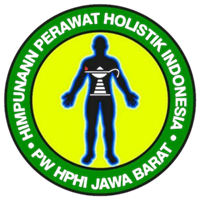Bibliometric Analysis of Research Trends on Food Taboos during Pregnancy in a Socio-Cultural Context
DOI:
https://doi.org/10.56359/gj.v6i1.482Keywords:
anemia, diet, food taboos, maternal health, nutrition, pregnancyAbstract
Introduction: Food taboos during pregnancy are common cultural practices in many developing countries. While intended to protect maternal and fetal health, these taboos often contradict recommended nutritional guidelines and may contribute to maternal undernutrition.
Objective: This study aims to analyze global research trends on food taboos among pregnant women using a bibliometric approach to identify knowledge gaps and emerging themes.
Method: A bibliometric analysis was conducted using data retrieved from the Scopus database covering publications from 2000 to 2024. The data were analyzed using VOSviewer software to map publication patterns, keyword co-occurrence, and thematic clusters.
Results: A total of 55 relevant articles were identified. The number of publications began to increase significantly in 2013, peaking in 2019. Most research originated from developing countries, notably Ethiopia and Nigeria, with a disciplinary focus on medicine, agricultural and biological sciences, nursing, and social sciences. The bibliometric mapping identified three main thematic clusters: (1) food taboos and dietary preferences, (2) health knowledge and attitudes, and (3) maternal nutritional status linked to socioeconomic factors. Emerging keywords included nutrition, anemia, diet, and undernutrition. However, key issues such as socioeconomic dimensions and dietary diversity remain underexplored.
Conclusion: Research on food taboos in pregnancy is growing but remains geographically and thematically concentrated. Future studies should adopt interdisciplinary and culturally sensitive approaches to address the nutritional implications of food taboos during pregnancy. These findings provide valuable insights for policymakers and researchers in designing effective maternal health interventions.
Downloads
References
Aubel, J., Toure, I., & Diagne, M. (2024). Senegalese grandmothers promote improved maternal and child nutrition practices: the guardians of tradition are not averse to change. ..Social Science & Medicine, 59(5), 945–959.
Aziz, et al. (2023). Research Trends of Creative Industries in Indonesia: A Bibliometric Analysis. Journal of the Knowledge Economy, 1–8. https://doi.org/https://doi.org/10.1007/s13132-023-01299-5
Bhutta, Z. A., et al. (2013). Evidence-based interventions for improvement of maternal and child nutrition: what can be done and at what cost? The Lancet, 382, 452-477.
Chakona, G., & Shackleton, C. (2017). Minimum Dietary Diversity Scores for Women Indicate Micronutrient Adequacy and Food Insecurity Status in South African Towns. Nutrients, 9(8). https://doi.org/https://doi.org/10.3390/nu9080812
Dewey, K. G., & Begum, K. (2011). Long‐term consequences of stunting in early life. Maternal & Child Nutrition, 7, 5–18.
Dhelia. (2002). Pamali: Pantangan Makan Masa Kehamilan Pada Orang Jawa dan Sunda di Lampung . Fakultas Ilmu Sosial Dan Ilmu Politik Universitas Lampung Bandar.
Donthu, N., Kumar, S., Mukherjee, D., Pandey, N., & Lim, W. M. (2021). How to conduct abibliometric analysis: An overview and guidelines. Journal of Business Research, 285–296. https://doi.org/https://doi.org/10.1016/j.jbusres.2021.04.070
Ekwochi, U., Osuorah, C. D. I., Ndu, I. K., Ifediora, C., Asinobi, I. N., & Eke, C. B. (2016). Food taboos and myths in South Eastern Nigeria: The belief and practice of mothers in the region. Journal of Ethnobiology and Ethnomedicine, 12(1). https://doi.org/https://doi.org/10.1186/s13002-016-0079-x
Hartini, T. N. S., et al. (2005). Food taboos among pregnant women in Madura, Indonesia:A qualitative study. BMC Public Health, 5(1), 5–8.
Intan, T. (2018). Fenomena Tabu Makanan pada Perempuan Indonesia dalam Perspektif Antropologi Feminis. Palastren Jurnal Studi Gender, 11(2), 233–258.
Kavle,J.A & Landry, M. (2018). Addressing barriers to maternal nutrition: Evidence and program considerations. Maternal & Child Nutrition, 14(1 e12508).
Kruger, R., & Gericke, G. J. (2023). A qualitative exploration of rural feeding and weaning practices, knowledge and attitudes on nutrition. Public Health Nutrition, 6(2), 217–223.
Mustopa, A.H., Saryono, S., Setiawan, H. and Masruah, I.I., 2024. Trends in the Use of Digital Stethoscopes in Healthcare: A Bibliometric Analysis. Jurnal Keperawatan Komprehensif (Comprehensive Nursing Journal), 10(2).
Oni, O. A., & Tukur, J. (2012). Identifying pregnant women who adhere to food taboos in a rural community: a community-based study. African Journal of Reproductive Health, 16(3), 68–76.
Downloads
Published
How to Cite
Issue
Section
License
Copyright (c) 2025 Sri Susanti, Oman Sukmana, Rahmad K. Dwi Susilo

This work is licensed under a Creative Commons Attribution 4.0 International License.















